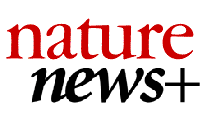

'Seal of secrecy' returns to science
27 June 1999
[BUDAPEST] The World Conference on Science needs to find a way to reconcile the protection of intellectual property rights with free access to knowledge, according to Pál Pataki, Hungary's representative to Unesco and the chair of the UN agency's governing Executive Board.
"The great ambition of the Renaissance was to open the secret box of knowledge and render the sciences accessible to everyone; and indeed science did become public property," he said. "But today it is as if the seal of secrecy was back once more.
"In scientific research, the attraction of the marketplace is growing constantly stronger, and so the findings of research financed by the private sector are patented and no longer circulated."
Pataki recounted how Unesco had started life as Uneco, and that the 'S' had been later inserted between the 'E' and the 'C' after a proposal from Ellen Wilkinson, UK minister for education and president of Uneco's founding conference in London.
Pataki quoted from Wilkinson's inaugural speech. "In these days, when we are all wondering, perhaps apprehensively, what the scientists will do to us next, it is important that they should be linked closely with the humanities and should feel that they have a responsibility to mankind for the result of their labours."
"The apprehension felt some 54 years ago is still with us today," said Pataki.
EHSAN MASOOD